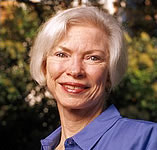‘The Miraculous Fall Upwards’
The story of how “Juneteenth” rose to prominence at the Texas Centennial in Dallas will be told by Elizabeth Hayes Turner, a Clements Center Fellow for the Study of Southwestern America, at a brown bag lunch-and-learn session April 13 from noon to 1 p.m. in the Texana Room of SMU’s DeGolyer Library
By Denise Gee
SMU News
DALLAS (SMU) — June 19, 1936, proved to be the most important celebration of black life and culture to that point in Texas history. The story of how “Juneteenth” rose to prominence at the Texas Centennial in Dallas will be told by Elizabeth Hayes Turner, a Clements Center Fellow for the Study of Southwestern America, at a brown bag lunch-and-learn session April 13 from noon to 1 p.m. in the Texana Room of SMU’s DeGolyer Library (6406 Hyer Lane).
“The Miraculous Fall Upwards” is derived from the 1932 literary work “Juneteenth” by African-American folklorist and educator J. Mason Brewer. After decades of Jim Crow insults, the lecture title represents positive change for black Texans after June 19, 1865, when slavery was abolished in Texas following the Civil War.
 Elizabeth Hayes Turner |
The Hall, dedicated on June 19, 1936, represented the finest collection of African-American painting and sculpture in the state, and the cultural repercussions from this event reached far beyond the fairgrounds.
Elizabeth Hayes Turner is a professor of history at the University of North Texas. She is spending the spring semester at SMU as a Clements Center Fellow for the Study of Southwestern American while completing her book manuscript, “Juneteenth: The Evolution of an Emancipation Celebration.”
For more details on the Clements Center for Southwest Studies, visit smu.edu/swcenter or call (214) 768-3684.
# # #